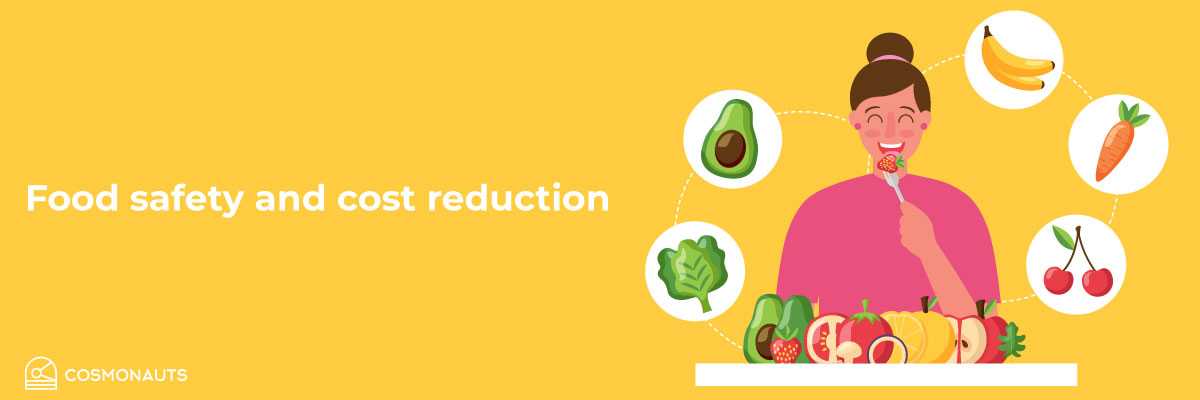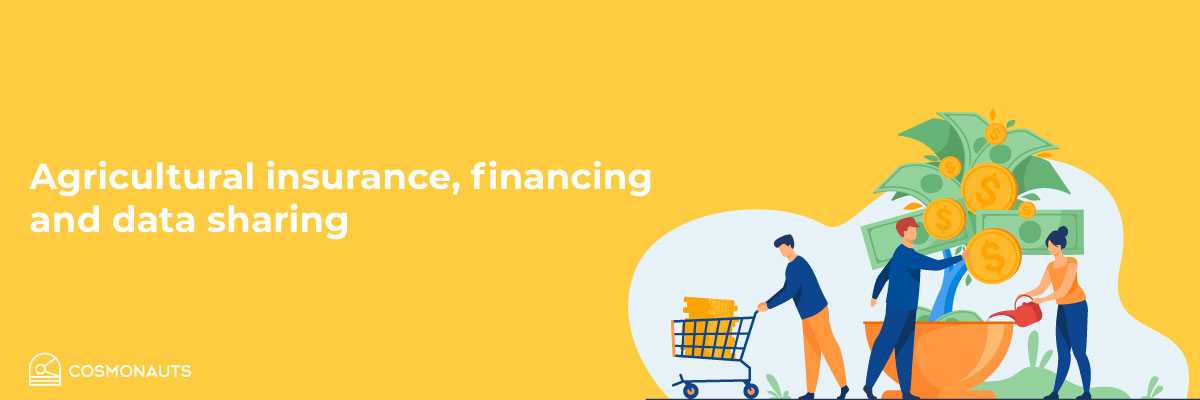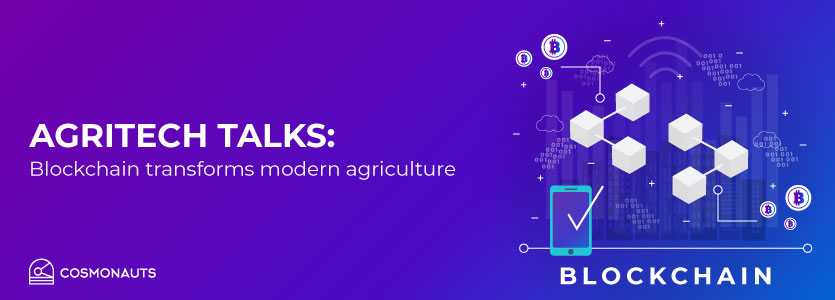It is no longer a secret that blockchain technology is not related only to the financial sector but also disrupts industries such as healthcare, real estate, hospitality, logistics and many more.
However, an industry that blockchain could potentially transform completely is agriculture.
You will be surprised if you knew how complicated ecosystems farmers have and need to manage. They do not only face a complicated seasonal financing structure but also need to handle tracking a high volume of contracts with suppliers, orders, invoices, etc.
Try and picture the journey that our food takes after it leaves the farm and before reaches the table – it becomes part of the massive supply chain involving a lot of intermediate parties. Who assesses the quality of the food? Is the assurance process credible? How can you check the quality of the food you are about to eat? All these questions require answers. Blockchain is proving to be the technology that provides answers to all of the above and many more questions regarding the customer demand, transparent market creation and agricultural insurance.
Blockchain is a ledger of accounts and transactions that are collectively managed by all participants typically through a peer-to-peer network. Blockchain is also referred to as the“Internet of value”, meaning a secure way to store and transact value which could be anything from currency such as Bitcoin to bonds, stocks, contracts and even votes. In agriculture, blockchain is used to track the origin of food and its journey until it reaches our plate. Hence, it helps create trustworthy and more efficient food supply chains, building confidence between producers and consumers. The blockchain technology ensures reliable information about the state of farms, inventories and contracts in agriculture, which usually is a very costly process.
1. Food safety and cost reduction

Food supply chain is complex and long due to globalization and intense competition in agriculture. Food traceability, supply chain inefficiency, food safety and quality are its main problems and as such create additional risks on the entire economy as well as the health of humans. According to The Center for Disease Control 47.9 million people in the United States are affected by foodborne illnesses, resulting in 127,000 hospitalizations and more than 3000 food-related deaths. In such cases there is no tolerance for uncertainty when tracking down the source of contamination. Blockchain technology makes it possible to track the information of a product throughout the entire supply chain, by creating a transparent and secured decentralized system. According to the United Nations, food frauds cost the global economy around $40 billion per year because of illicit trades.
Furthermore, this helps combat food fraud and reduce the costs of food supply chain management, providing benefits for all involved parties – consumers, producers and regulation bodies. From the consumers’ perspective, the blockchain addresses consumers’ concern about the safety, quality and ecofriendliness of the food by providing reliable information about the food in every step on its way to the table. On the other hand, blockchain helps producers establish their reputation as a trustworthy party in the supply chain. Moreover, the blockchain helps with compliance with food government regulations.
2. Agricultural insurance, financing and data sharing

Agricultural production often suffers from bad weather conditions and climate change which leads to food security risks. Therefore, farmers rely on agricultural insurance to manage weather risks. The information on the riskiness of the production is usually asymmetrically distributed between farmer and insurer. Blockchain can improve the risk distribution equally between the two parties. Through blockchain technology payments are made timely and automated based on the weather data that triggers the payout as defined in the smart contract. Also, the weather and production information is automatically integrated in real-time into the platform which reduces risk and optimises the payout process.
Furthermore, blockchain provides easier access to financial services for farmers as well as transparency for the financial institutions. Blockchain serves to store data and information throughout the entire supply chain process, from seed to sale, of producing an agricultural product. Agri businesses can apply for working capital, loans, insurance and manage their entire operations including contracts, purchase orders and payments, using blockchain technology. The shared information helps banks determine whether the farm will be able to repay the loan.
Outlook for blockchain in the agriculture industry
The global agriculture industry is now worth over 2.4 trillion dollars and has over one billion people involved worldwide. Now more than ever, there is an opportunity for innovation in agriculture and blockchain could be a driving force in the sector. However, there are some limitations and risks associated with blockchain technology in agriculture which we will examine in our upcoming blog posts.
Follow us on social media.
Categorised in: Green Tech

